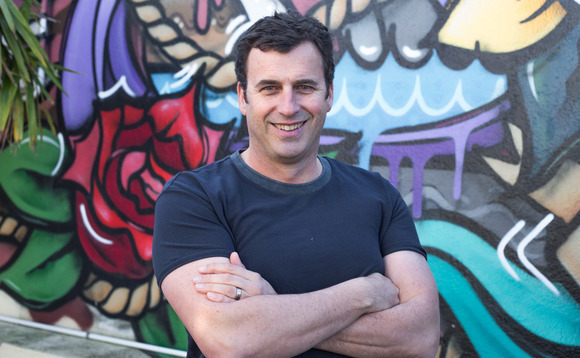
Fund focus: Patience pays for off for Movac

New Zealand VC firm Movac has exceeded expectations with its latest vintage, trading individuals and families for institutions, some of which are entering the asset class for the first time
In the most uncertain days of raising its latest fund, New Zealand venture capital firm Movac envisaged topping out at around NZD 120m (USD 75m) or NZD 150m. In the end, Movac Growth Fund 6 was oversubscribed and closed on NZD 202m, requiring several new and late contributions to be scaled back.
Mark Vivian (pictured), a general partner at the firm, attributes it primarily to track record: the previous four funds had achieved a combined total value to paid-in (TVPI) of 4x. The team of partners has been together for more than a decade, pursuing a high-conviction style that typically involves leading rounds and taking board seats. The portfolio support team is sizeable.
Still, the influence of the macro situation loomed large, and a tendency to hold fire in a hot market proved attractive. Movac has made 10 investments since the start of 2021, according to AVCJ Research, and the new fund remains undeployed. Local competitor Icehouse Ventures, as a point of comparison, made 24 investments in the same period.
"A lot of the due diligence done on us was around how we've demonstrated investment discipline in the last 4-5 years. We stepped out of a number of deals because we thought they were overpriced or imbalanced in some way. I think we'll see a number of those come back on the table in the next 12-24 months," Vivian said.
"With our Fund III, we made no new investments for 18 months, and as fund managers, we were getting pretty frustrated. We had a great conversation with one of our experienced LPs, and he said, ‘I'm paying you to make great deals, not just any deals. So, stay true to your mandate, be patient and opportunities will come at the right time.'"
New Zealand Superannuation Fund (NZ Super) made the cornerstone commitment, contributing half of the NZD 100m first close last December.
Participants in the government's KiwiSaver retirement scheme represented about two-thirds of the corpus, among them first-time VC investors Fisher Funds and Generate KiwiSaver. This is said to be significantly higher than Movac's fifth fund, which closed on NZD 250m in 2021.
Meanwhile, about 5% came from indigenous Maori tribes, also known as iwi groups, tracking a growing appreciation for an asset class with few familiar brick-and-mortar points of comfort. In all, the process reflected a reticence among family offices and individuals amidst growing pressure for institutions to diversify into new areas.
The new fund will target later-stage opportunities than most of Movac's funds. The firm's fourth vintage, which closed on NZD 110m in 2017, was the first to target more mature companies, backing businesses with annual revenue of at least NZD 2m, ideally NZD 10m-NZD 15m.
Like Fund IV, Fund VI will have a relatively compact portfolio of 8-12 investments; Fund V, an early-stage mandate, invested in 20. The strategy is sector-agnostic, but there must be some kind of technology or innovation moat.
To date, the standout proof for the Movac approach is the sale of wireless device charging technology provider PowerbyProxi to Apple in 2017 at a valuation of NZD 270m. Movac backed the University of Auckland spinout from its seed stage through a NZD 10m Series D round in 2014.
"One of the comments Apple came back with post-acquisition was, ‘You guys [New Zealanders] have built some incredible technology for a fraction of the price that it would have cost in the US or elsewhere,'" Vivian said, musing on a unique sense of self-reliance in the local start-up scene.
"That's not because we underpay people. We just don't throw huge amounts of capital at fixing problems, thinking that the capital is the key to success. It's actually just being really focused and pragmatic around building the solutions to fix those problems."
Latest News
Asian GPs slow implementation of ESG policies - survey
Asia-based private equity firms are assigning more dedicated resources to environment, social, and governance (ESG) programmes, but policy changes have slowed in the past 12 months, in part due to concerns raised internally and by LPs, according to a...
Singapore fintech start-up LXA gets $10m seed round
New Enterprise Associates (NEA) has led a USD 10m seed round for Singapore’s LXA, a financial technology start-up launched by a former Asia senior executive at The Blackstone Group.
India's InCred announces $60m round, claims unicorn status
Indian non-bank lender InCred Financial Services said it has received INR 5bn (USD 60m) at a valuation of at least USD 1bn from unnamed investors including “a global private equity fund.”
Insight leads $50m round for Australia's Roller
Insight Partners has led a USD 50m round for Australia’s Roller, a venue management software provider specializing in family fun parks.







